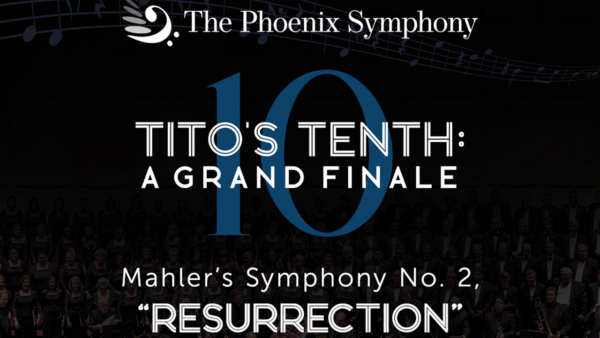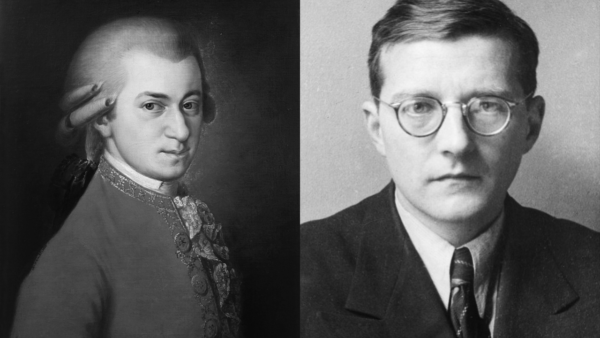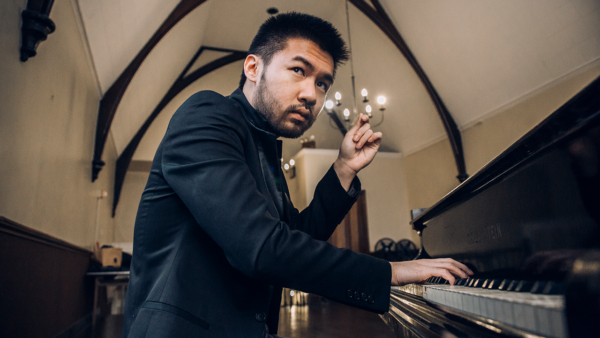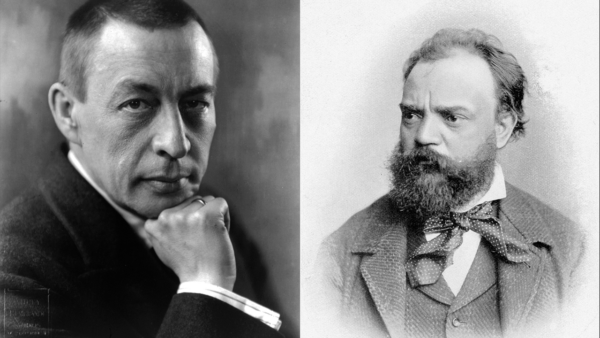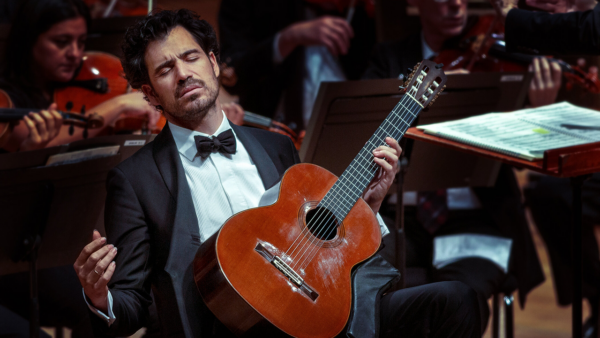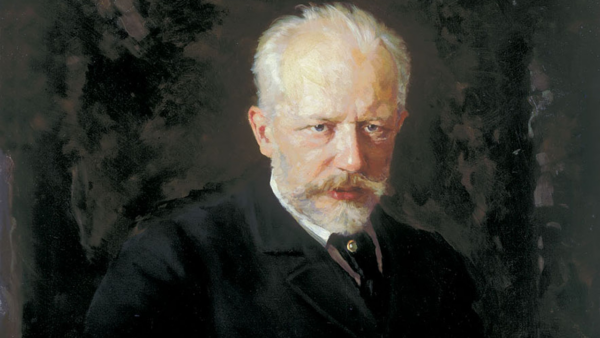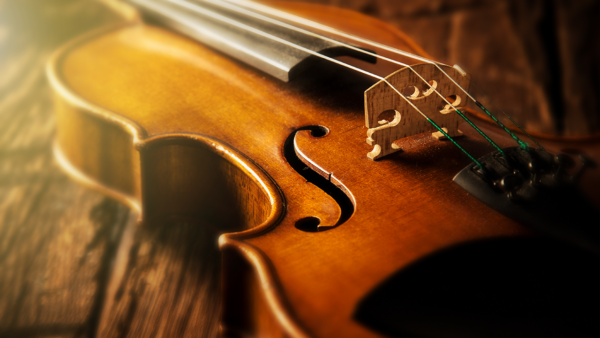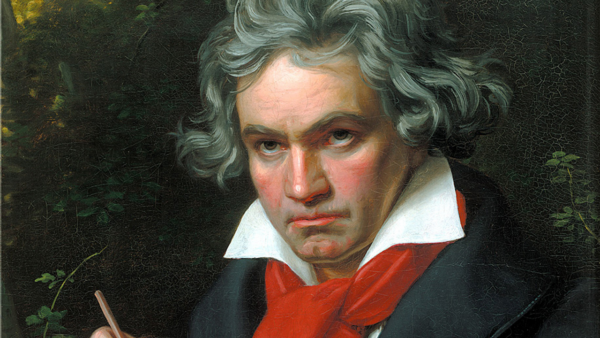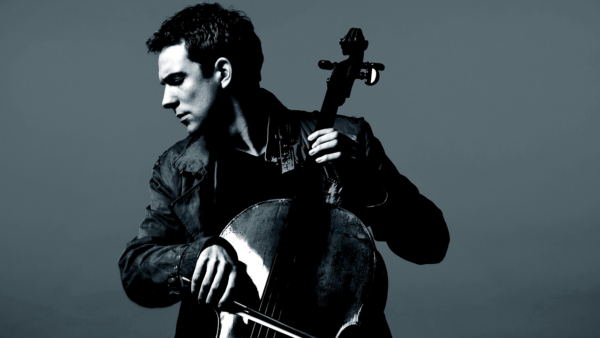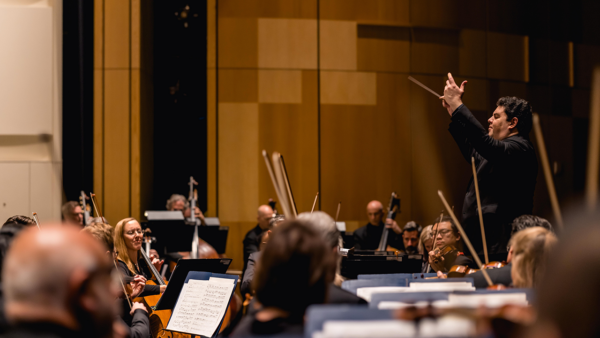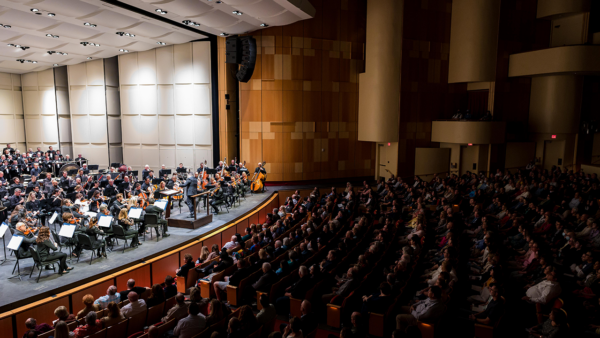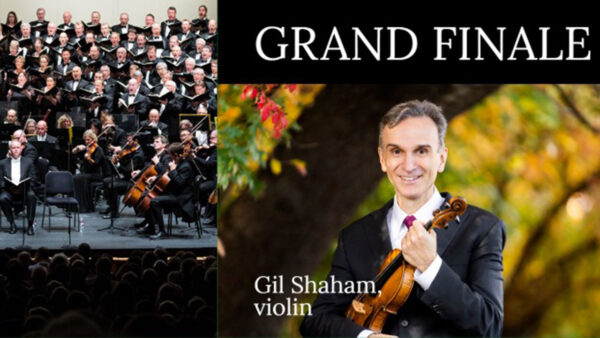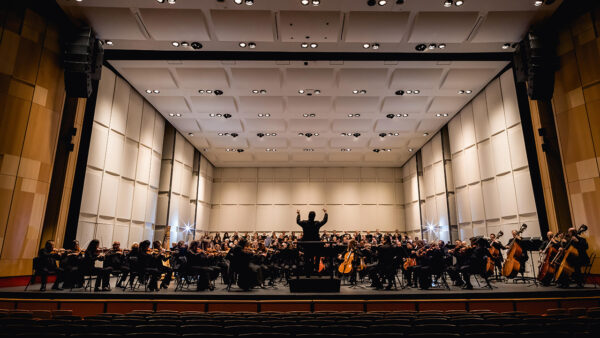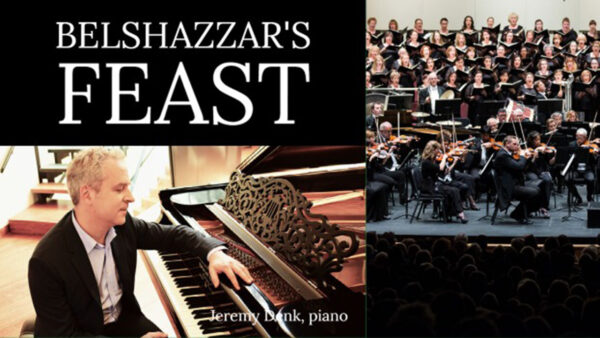Purely Classical
Oct. 16, 2023
The Phoenix Symphony’s next broadcast, “Purely Classical,” is a celebration of two of the most-loved composers in classical music: Mozart and Beethoven. We hear the influence of both the Classical era with Mozart and the beginnings of the Romantic era with Beethoven.
This program is conducted by Virgina G. Piper Music Director Tito Muñoz, from January 7, 2023. Joining us on the program is the acclaimed former concert master of The Phoenix Symphony violinist Steven Moeckel. Tune in on Monday night at 7:00 p.m. on KNAU Arizona Public Radio, 89-5 Classical KBACH and DTV 8.5.
This era of music is very much musical comfort food, full of melody, moments of extreme virtuosity and plenty of drama. The program starts with just that – drama – and Beethoven’s Leonore Overture No. 3. One of four overtures Beethoven wrote for the opera Fidelio.
Beethoven famously struggled to bring this Age of Enlightenment tale of personal sacrifice, freedom, and justice to the stage. The opera was originally titled Leonore after the heroine who dons the male disguise of “Fidelio” to save her husband, a political prisoner being held captive in an underground prison. But Beethoven didn’t just tinker with the opera’s title: he premiered three different versions of this opera between 1805 and 1814.
He also struggled with the opera’s overture, writing three different versions and then scrapping them all to create a new, lighter overture which is now the standard one used to open the opera. The Leonore Overture No. 3 is powerful and dramatic, making it feel like a stand-alone concert overture and overwhelming the lighthearted comical opening of the opera. Thankfully, the Leonore Overture No. 3 is a frequent and welcome visitor on the concert stage.
The first half of the concert continues with Mozart’s Violin Concerto No. 3 in G minor, with acclaimed violinist Steven Moeckel as soloist. By 1775, Mozart was a 19-year-old court musician in Salzburg, Austria, where he had been since 1773. Although musicologists believed Mozart wrote all five in 1775, recent research shows he composed the first in 1773 and the other four in 1775, and never wrote another violin concerto.
The second part of the program opens with Mozart’s dramatic Symphony No. 40 in G minor.
Mozart’s final three symphonies, No. 39, 40 and 41, were composed during the summer of 1888, just a few years before his death. The stormy key signature of G minor is notable, as only one other of his symphonies, the Symphony No. 25 (1773), is in a minor key, and the same key at that. Still, what resulted musically was miraculous. The pianist and writer Charles Rosen said it was “something shockingly voluptuous. Nor does this detract from its power or effectiveness: the grief and the sensuality strengthen each other.”
Filling out the program, we return to Beethoven for an inspiring performance of his Violin Sonata No. 7 in C Minor with Steven Moeckel on the violin with pianist Paula Fan. It’s a work that is highly collaborative with both instruments being integral to the whole. It is evident from the first few seconds of music that this work is a dramatic, emotional, big piece that is not just a violin showcase but a collaborative work with both violin and the piano as equal partners, not one accompanying the other. This performance was recorded as part of The Downtown Chamber Series at Legend City Gallery in 2018.
Tune in Monday night and indulge in Mozart and Beethoven as we explore the theme of “Purely Classical” on the next broadcast of The Phoenix Symphony, produced by Classical Arizona PBS.
Featured in this episode:
Beethoven - Leonore Overture No. 3, Op. 72b - The Phoenix Symphony; Tito Muñoz, conductor
Mozart - Concerto No. 3 in G Major for Violin and Orchestra, K. 216 - The Phoenix Symphony; Tito Muñoz, conductor; Steven Moeckel, violin
I. Allegro
II. Adagio
III. Rondo: Allegro
Mozart - Symphony No. 40 in G Minor, K. 550The Phoenix Symphony; Tito Muñoz, conductor
I. Molto allegro
II. Andante
III. Menuetto: Allegretto
IV. Allegro assai
Beethoven - Sonata No. 7 in C Minor, Op. 30, No. 2 - Steven Moeckel, violin; Paula Fan, piano
I. Allegro con brio
II. Adagio cantabilie
III. Scherzo: Allegro; IV. Finale: Allegro









